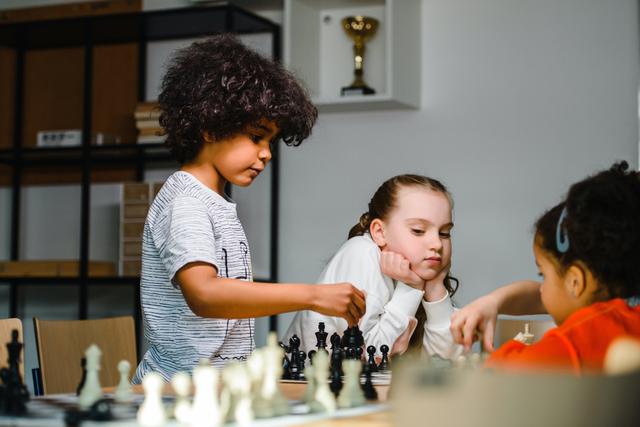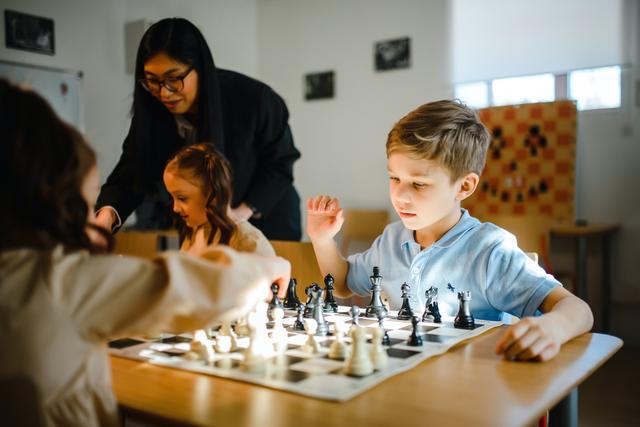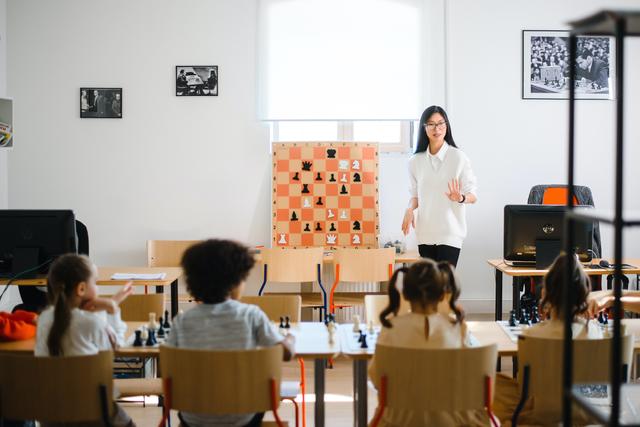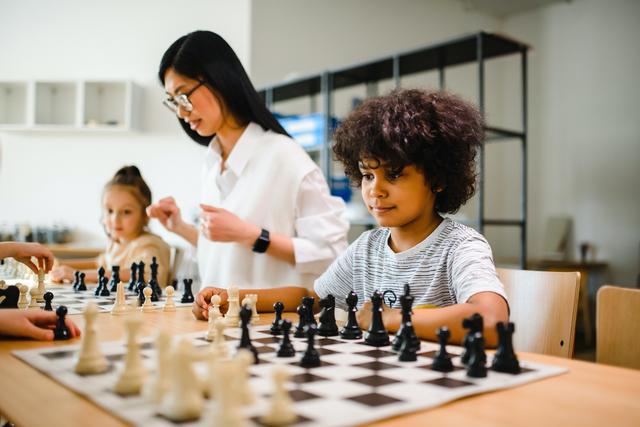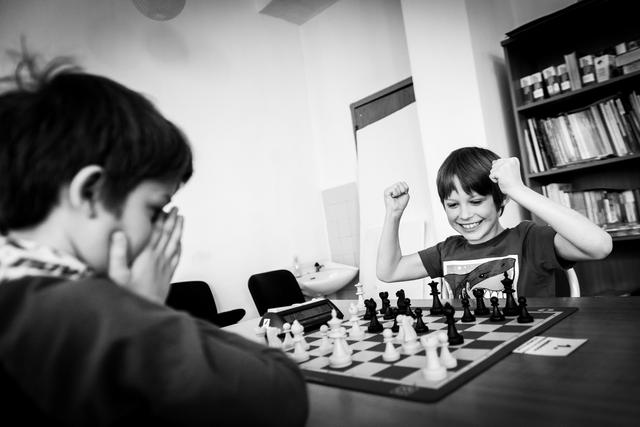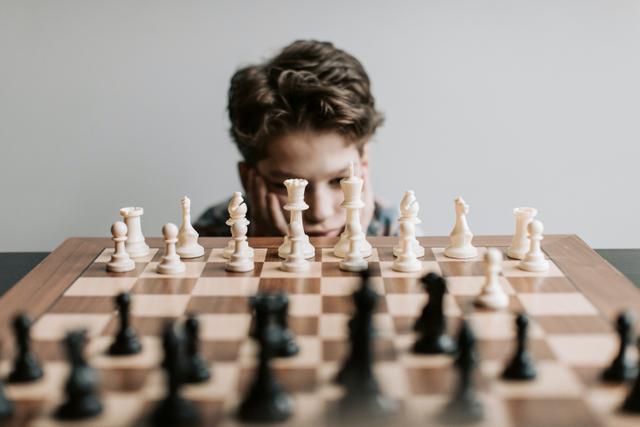Chess Articles
Chess For Kids In The UK
Chess is an intellectual board game that enjoys substantial popularity among kids in the UK. The game, with a profound heritage, is rooted deep in British culture, having been introduced over a thousand years ago. Chess originally made its way to the UK from northern India through Persia and the Islamic world during the early medieval period. The discovery of a historical chess set on the Isle of Lewis, Scotland, dating back to the 10th century, stands as one of the earliest evidence of chess in the country.
Throughout the centuries, chess has woven itself into the social and cultural fabric of the UK. During the Middle Ages, chess began to take a more formal shape with the first recorded tournament held in London in 1478. The game continued to gain traction, giving rise to prominent British chess figures in the 19th and early 20th centuries, including Howard Staunton, Joseph Blackburne, and Harry Pillsbury, who played pivotal roles in popularising the game further.
In present times, chess remains a favoured activity among children across the UK. With a plethora of chess clubs, extensive tournaments, and enriching educational programmes, the game continues to thrive and engage young minds. These platforms not only nurture young players who are beginning to learn the ropes but also challenge experienced players to enhance their skills. The communal and competitive aspects of these gatherings help in fostering a sense of community and sportsmanship among participants.
For parents looking to introduce their children to chess, the UK offers ample opportunities through local clubs, schools, and community centres, ensuring that the benefits of this timeless game are accessible to all.
The Benefits of Chess
Chess offers a multitude of health benefits for children, making it a valuable activity for their development. Engaging in chess improves cognitive abilities significantly; it enhances memory, boosts concentration, and develops problem-solving skills. Children learn to think critically and apply logical reasoning, which are essential skills both in academic environments and everyday life.
Socially, chess acts as a bridge, helping children build better relationships with their peers. It teaches important values such as sportsmanship, teamwork, and effective communication. These social skills developed through chess can lead to better interactions at school and in other group activities.
Furthermore, chess has been linked to better academic performance. Research suggests that the strategies involved in the game can enhance a child's aptitude in mathematics and language arts, contributing to their overall educational experience.
Creativity is another significant benefit. Chess requires players to think innovatively and envision future possibilities, which nurtures their creative thinking capabilities.
Lastly, playing chess helps in reducing stress and anxiety. It is a tranquil yet engaging pursuit that can offer a peaceful break from the daily activities, providing children with a unique way to unwind and relax. Thus, chess is not just a game but a supportive tool for holistic health and personal development in children.
FAQs
1. What are the benefits of learning chess for children? Answer: Chess offers numerous benefits for children, including enhancing cognitive development, improving concentration and problem-solving skills, boosting social skills through interaction with peers, and even aiding in stress relief. It also contributes positively to academic performance, particularly in mathematics and language arts, by fostering better memory retention and logical reasoning abilities.
2. At what age can children start participating in chess tournaments in the UK? Answer: Children can start participating in chess tournaments at a variety of ages, often as young as six or seven. Organised junior tournaments provide age-appropriate competition, allowing young players to develop their skills against equally skilled opponents. It's important to ensure the tournament environment is supportive and suitable for the child’s age and level of experience.
3. Are there specific chess programmes or curricula designed for children in UK schools? Answer: Yes, many UK schools incorporate chess into their extracurricular activities, and some have integrated chess programmes within their curriculum to leverage its educational benefits. Schools may partner with local chess clubs or national organisations like the UK Chess Federation to provide structured training and play opportunities.
4. What is the recommended frequency of practice for children who wish to improve their chess skills? Answer: For children looking to improve their chess skills, regular practice is crucial. It is recommended that they engage in chess activities, whether lessons, practice games, or puzzles, several times a week. Consistency helps in reinforcing the strategies and concepts they learn, and frequent playing against a variety of opponents enhances their adaptability and tactical skills.
5. How can parents support their children in becoming better chess players? Answer: Parents can support their children's chess development by providing access to chess materials and opportunities to play, such as chess sets at home, enrolling them in clubs, or online platforms where they can practice. Additionally, attending tournaments with them can offer encouragement and motivation. Parents can also consider arranging for coaching if their child is particularly keen or shows significant aptitude in the game.
